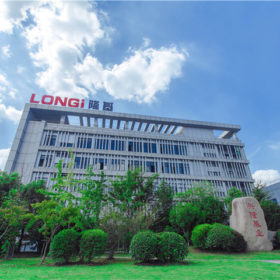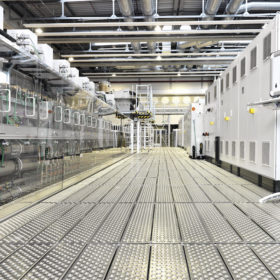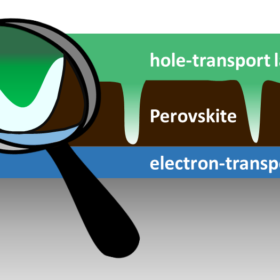NREL scientists observe perovskite degradation at nano-scale
A team from the U.S. National Renewable Energy Laboratory (NREL) has developed a novel microscopic technique, which enables them to observe degradation in perovskite materials at the nano-scale, and pinpoint key areas for attention in their efforts to improve the stability and durability of the material.
Longi achieves record conversion rate of 20.41% for PERC modules
Longi Green Energy Technology has announced a new record conversion rate of 20.41% for its P-type PERC monocrystalline modules (type 60).
Leading research institutes to collaborate on flexible CIGS
Two of Europe’s leading research institutes, Germany’s Centre for Solar Energy and Hydrogen Research Baden Württemberg (ZSW) and the Institut Photovoltaïque D’Île de France (IPVF) have announced plans to closely cooperate in researching concepts for flexible solar cells utilizing CIGS technology.
Chinese researchers develop new gas-solid perovskite process
In another attempt at cracking the perovskite stability problem, scientists from China’s Liaocheng University and Hefei University of Technology have developed a new gas-solid process for the creation of perovskite thin films, which they say can lead to improved stability and response time.
Skanska, Saule Technologies to install BIPV perovskite modules on office buildings
The two companies have signed a license agreement. The first pilot projects with the semitransparent perovskite solar cells are planned for this year in Poland
Harvesting energy from ‘hot’ electrons could boost perovskite efficiency
Scientists from the University of Groningen have discovered a tin-based perovskite material in which electrons retain high energy levels for much longer than previously. This discovery could allow for the creation of very high efficiency perovskite cells, by eliminating a large portion of energy loss through heat.
German scientists claim inhomogeneous perovskite films are highly functional
Contrary to common belief, holes in perovskite films may not always negatively affect the performance of perovskite-based solar cells, according to recent research from the Helmholtz Zentrum Berlin (HZB).
Seasonal patterns show a need for more solar in the U.S. electricity mix
An abundance of hydroelectric power and wind is pushing up renewable energy in the spring months, but there is a need for more power during the summer peak, as well as issues with the geographic location of resources.
Researchers at Cambridge University develop new type of two-cell bio-photovoltaics
Researchers have developed and designed a new algae-powered fuel cell that is five times more efficient than existing plant and algal models, as well as having the potential of being more cost-effective to produce and more practical to use.
Scientists study impact of RE, energy trade on power grid frequency fluctuations
Research by scientists at the Queen Mary University of London, the Max Planck Institute for Dynamics and Self-Organization in Gottingen, alongside German and Japanese researchers, has sought to analyze the impact of renewables and trading on power grid frequency fluctuations.










